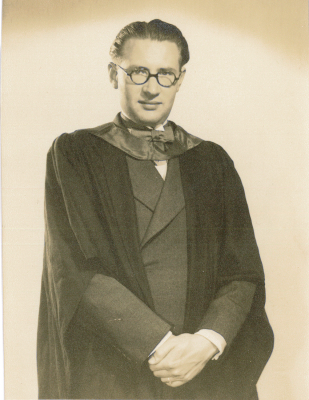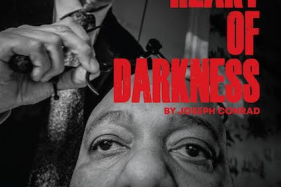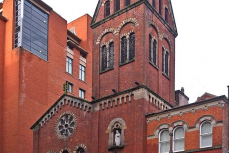Tribute to Witold Tulasiewicz

Witold Tulasiewicz
My father, who died aged 94 on 6 December 2017, was born in Berlin to Halina and Edward. My grandmother was from a Polish family who due to the partitions of Poland had ended up in Prussia - together with her sister Sophia she had studied music at the Stern Conservatory and was an accomplished pianist.
My grandfather hailed from the other side of Poland - one of nine children from the small town of Jagielnica, an important centre of Jewish life prior to World War II. Jagielnica was not far from Lviv, now in Ukraine, but a city with long associations with Poland. Somehow, he managed to enter the Polish diplomatic service and served as a Vice Consul and Consul in Essen and Leipzig.
My father had a good education and went to the St Thomas school in Leipzig where Johann Sebastian Bach held once held the position of Thomaskantor and also as a boarder to a 'progressive' boarding school in Rydzyna, near Poznan, from which he ran away several times to stay with a cousin, Natalia Tulasiewicz, who was beatified by Pope John Paul II as one of the 108 Polish martyrs of the Second World War.
What life was like growing up in pre-war Germany he never really revealed to me, apart from rather unsettlingly telling me that a) he had shaken the hand of Goebbels at a trade fair in Berlin and b) had to have his head measured to check his 'Aryan' credentials.
Come September 1939, Witold was in Leipzig with his parents. The Germans informed the Polish consular staff that they were going to invade and somehow they got a train back to Poland on the last day of peace.
Witold's father knew he had to escape or face imprisonment or worse. Italy had not yet entered the war, so through his diplomatic connections, in early 1940 he obtained Italian entry visas for his family of five and rather amazingly bought train tickets for Milan and from there joined with the Polish Government-in-exile in France.
A few months later with the fall of France, Witold and his parents escape continued with a boat journey to Algeria and then onto Casablanca. The Polish Government-in-exile had now reached London, so the final act in their escape to freedom was by freight ship from Casablanca to Swansea.
The war years were spent in and near London and included a spell washing dishes, at the Savoy. When peace came, Witold went to Swansea University to study German, having, I recently found out, turned down a place at Cambridge to study Chemistry on the advice of his mother who thought languages would be more useful.
After graduating he returned to London and lived with his parents in a top floor flat in Langham Mansions 'in Earls Court Square, which I never quite understood how they had managed to obtain. In due course, the flat also became home to his mother's Beckstein piano, which had miraculously survived the war in a furniture store in Germany.
That part of London was at the heart of Polish London, close to the HQ of the Polish Government-in-exile, Brompton Oratory where many Poles went to Mass, Polish shops and even the Polish air force club.
When peace came, Witold went back to Swansea to study English at University. His first work was for as an inspector of the education being received by Polish refugees in resettlement camps. He then taught in grammar schools in Hertfordshire and in 1956 he met my mother, Maria, his first wife.
In the early 1960's we moved to Cambridge, where my father became a Lecturer at the University's Department of Education.
During this time, he produced an index of The Kaiserchronik a 12th-century chronicle written in Middle High German verse. The index was issued by an East Berlin publisher and he developed close links with East Germany. This was important for academic reasons, but according to John Le Carre, such links could also be important for other reasons.
In 1970 my parents divorced and in 1973, Witold married his second wife, Lore.
The next two decades saw Witold continuing to develop his academic career. He developed a speciality in comparative education, which had the benefit of having to travel extensively to other countries.
Although he was not a churchgoer, he recognised the important influence of religion on education and his book 'World Religions and Educational Practice' was an important text for anyone studying the role played by religious belief on the development and practice of schooling and education.
His other specialism was Language awareness - a wide ranging area which includes the study of how people best learn languages and how they communicate in real-life situation. This may have stemmed from his own background where he was exposed to many languages. He was always interested in Esperanto, created by a Polish Jew in the multi-ethnic city of Bialystok,partly as a way of trying to make it easier for different nationalities to understand one another.
He took his responsibilities as a member of the Tulasiewicz family, small and spread very thinly in Europe and North America, seriously. That even extended to small but important practical help, such as sending Polyfilla to Romanian cousins to help them patch together their home in Bucharest after an earthquake!
As an outsider, I think that my father wanted to belong and he was proud of being a Fellow of Wolfson College. But although he could often appear to be a perfect 'Cambridge man' his fluency in languages allowed him to blend in in many places. I often wondered, if he felt at home everywhere? Or perhaps, as is the case with many refugees, did he not really feel at home anywhere?
Despite some heart problems, Witold's health was very good although his eye sight gradually faded due to macular degeneration. But his last year was pretty miserable - confined to bed and unable to walk or even get up unaided. The blessing of the year was that it allowed me the opportunity to realise just how much he loved Lore, his family and his friends.


















